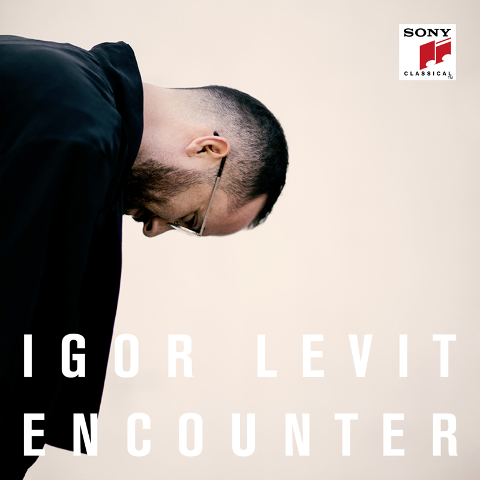ENCOUNTER – IGOR LEVIT
Igor Levit’s “Encounter”: A Thoughtful Exploration of Musical Conversations
Mark Jordan, February 2020
Igor Levit’s “Encounter” is a contemplative and intricate album that brings together a diverse array of composers, spanning from Bach and Brahms to Busoni, Reger, and Feldman. The piano virtuoso’s journey through this musical landscape is characterized by his intense introspection, which was nurtured during the challenging times of the Covid era. While the album offers moments of profound insight and compelling interpretation, it occasionally falls short of fully capturing the emotional depths one might anticipate from Levit’s reputation.
The album opens with an engaging fusion of Bach’s chorale preludes, reimagined with a nuanced touch. Levit’s performances exude a sense of elegance and fluency, as if the pieces have found a natural home in this context. However, there are moments where one might yearn for a deeper exploration of the profound emotional and spiritual themes that these chorale preludes embody. Levit’s approach, while undeniably skillful, occasionally lacks the profound emotional resonance that distinguished interpretations, like Brendel’s rendition of “Ich ruf zu dir,” are known for.
Brahms’s “Serious Songs,” a collection often associated with vocal performances, takes on an intriguing dimension as Levit presents them solely on the piano. While some listeners might find this reinterpretation to be engaging and thought-provoking, others may experience a sense of something missing, particularly in the absence of the human voice that originally lent these songs their emotional weight. Nonetheless, Levit’s placement of these pieces within the album’s program holds a certain logical cohesion, highlighting the intricate web of connections between composers and their influences.
One of the standout features of “Encounter” is Levit’s inclusion of Morton Feldman’s “Palais de Mari,” a contemplative and meditative composition inspired by Syrian ruins in the Louvre. Levit’s interpretation showcases his ability to bring forth a sense of profound stillness and introspection, allowing listeners to immerse themselves in the delicate world Feldman has crafted. The slower-than-usual tempo chosen by Levit amplifies the sense of quietude, drawing listeners into an introspective sonic journey.
Levit’s commitment to music as a means of grappling with life’s most profound questions is evident throughout “Encounter.” His dedication to his craft and his willingness to explore unconventional pairings of composers demonstrate his artistic curiosity and his desire to engage with audiences on a deeply emotional and intellectual level. It’s worth noting that the album’s production quality, while generally solid, occasionally falls short in capturing the full tonal spectrum and subtlety of Levit’s playing.
In the end, “Encounter” presents a collection of performances that, while not entirely meeting the lofty expectations associated with Levit’s name, still offers a wealth of thought-provoking musical conversations. The album’s exploration of connections between composers, styles, and eras is a testament to Levit’s artistic vision and his willingness to delve into the profound depths of music. It may not be the epoch-making opus some may have anticipated, but it remains a valuable addition to the discography of an artist known for his intellectual curiosity and passionate dedication to his craft.

